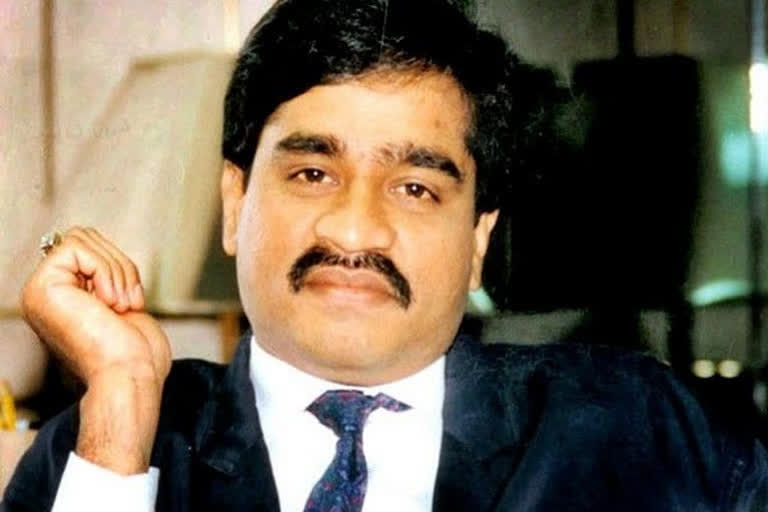New Delhi: In its bid to wriggle out of the Financial Action Task Force (FATF) black list, Pakistan has finally admitted that India's most wanted terrorist Dawood Ibrahim lives in the coastal city of Karachi while proscribing 88 terrorists in compliance with a list issued by the UN Security Council, media reported on Saturday.
Prime Minister Imran Khan's Pakistan Tehreek-i-Insaf (PTI) government issued two notifications August 18, announcing sanctions on key figures of Jamaat-ud-Dawa (JuD), Jaish-e-Mohammed (JeM), Taliban, Daesh, Haqqani Group, Al Qaeda, and others.
According to The News International, the notifications ratified a complete ban on all leaders and members of defunct Tehreek-e-Taliban Pakistan (TTP) hiding in the Pakistan-Afghan border areas. Hafiz Saeed Ahmad of Jamaat-ud-Dawa, Mohammad Masood Azhar of Jaish-e-Mohammed, Mullah Fazlullah (alias Mullah Radio), Zakiur Rehman Lakhvi, Muhammad Yahya Mujahid, Abdul Hakeem Murad, wanted by Interpol, Noor Wali Mehsud, Fazal Raheem Shah of Uzbekistan Liberation Movement, Taliban leaders Jalaluddin Haqqani, Khalil Ahmad Haqqani, Yahya Haqqani and Dawood Ibrahim of the Indian state of Maharashtra and his associates.
India has been seeking the extradition of Dawood Ibrahim for long in connection with the 1993 Mumbai bombings that resulted in 257 deaths.
Meanwhile, the naming of Lakhvi is significant given that India has named him as the mastermind behind the 2008 Mumbai terror attacks.
Though the Paris-based FATF had put Pakistan on the grey list in 2018 setting a deadline of end of 2019 to implement a plan of action against terrorism emerging out of its soil, it was extended in view of the Covid-19 pandemic.
Read:India-Japan ties not against any third country: Expert
As a global money-laundering and terrorist financing watchdog, the FATF sets international standards that aim to prevent these illegal activities and the harm they cause to society. As a policy-making body, the FATF works to generate the necessary political will to bring about national legislative and regulatory reforms in these areas.
With more than 200 countries and jurisdictions committed to implementing them, the FATF has developed the recommendations, or standards, which ensure a coordinated global response to prevent organised crime, corruption and terrorism. They help authorities go after the money of criminals dealing in illegal drugs, human trafficking and other crimes. The FATF also works to stop funding for weapons of mass destruction.
The FATF reviews money laundering and terrorist financing techniques and continuously strengthens its standards to address new risks, such as the regulation of virtual assets, which have spread with cryptocurrencies gaining popularity. The FATF monitors countries to ensure they implement the FATF standards fully and effectively, and holds countries to account that do not comply.
Now, the notifications by Pakistan under a self-regulatory organization or SRO as it is officially called, said that leadership of the defunct TTP, and other organisations including Lashkar-e-Taiba, Jaish Mohammed, Lashkar-e-Jhangvi, Tariq Geedar group of TTP, Harkatul Mujahedin, Al Rasheed Trust, Al Akhtar Trust, Tanzim Jaish-al Mohajireen Ansar, Jamaat-ul Ahrar, Tanzim Khutba Imam Bukhari, Rabita Trust Lahore, Revival of Islamic Heritage Society of Pakistan, Al-Harmain Foundation Islamabad, Harkat Jihad Al Islami, Islami Jihad Group, Uzbekistan Islami Tehrik, Daesh of Iraq, Emirates of Tanzim Qafqaz working against Russia, and Abdul Haq Uyghurs of Islamic Freedom Movement of China have been banned. The Pakistan government has also ratified the ban on these terror outfits and individuals, the report said.
Read:Teesta in the shadows of India-Bangladesh vaccine talks?
The report cited the Pakistan Foreign Office as stating that it is the UNSC Taliban Sanctions Committee that deals with sanctions on Taliban and entities and individuals, associated with them. Upon any change by the Committee, all states including Pakistan, implement these sanctions which include assets freeze, arms embargo and travel ban. The Taliban Sanctions Committee has not announced any changes in its sanctions list recently.
The SRO, issued by Pakistan August 18 "only consolidates and documents the previously announced SROs as a procedural measure and does not reflect any change in the sanctions list or sanction measures," it stated.
